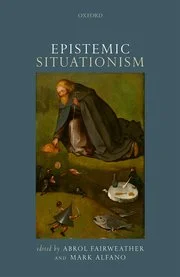DHEPCAT
Welcome to the Digital Humanities & Experimental Philosophy CollaborATive (DHEPCAT)!
DHEPCAT develops methodologies in natural language processing (NLP) and visual analytics to address issues in philosophy and cognate fields. Digital humanities methods integrate and extend both close-reading and distant-reading techniques and offer a new source of evidence for empirically-informed and experimental philosophy. Traditionally, scholars working in experimental philosophy have focused on designing and conducting surveys and experiments to elicit judgments that reflect laypeople’s intuitions about philosophically important concepts such as right action, knowledge, meaning, or personal identity. As with any study that garners reactions from participants who have given informed consent, such work has limited external validity. Studies employing vignettes drawn from professional philosophy -- such as stories involving mad scientists, runaway trolleys, and all-knowing supercomputers -- run the additional risk of lacking ecological validity. While researchers have made progress investigating the judgments that laypeople produce when prompted with extraordinary scenarios, our understanding of people’s everyday intuitions would be enriched if we could review the judgments they express in the course of their everyday lives.
DHEPCAT is developing a suite of reproducible methodologies, step-by-step tutorials for applying them, and showcase studies. Our projects include:
The Intellectual Virtue Project
The Value Mining Project
DHEPCAT is based at Macquarie University, but we happily collaborate both nationally and internationally. You can find a list of our people here. Feel free to get in touch if you are interested in beginning a new collaboration.






Mark Alfano. Cambridge University Press (2013).